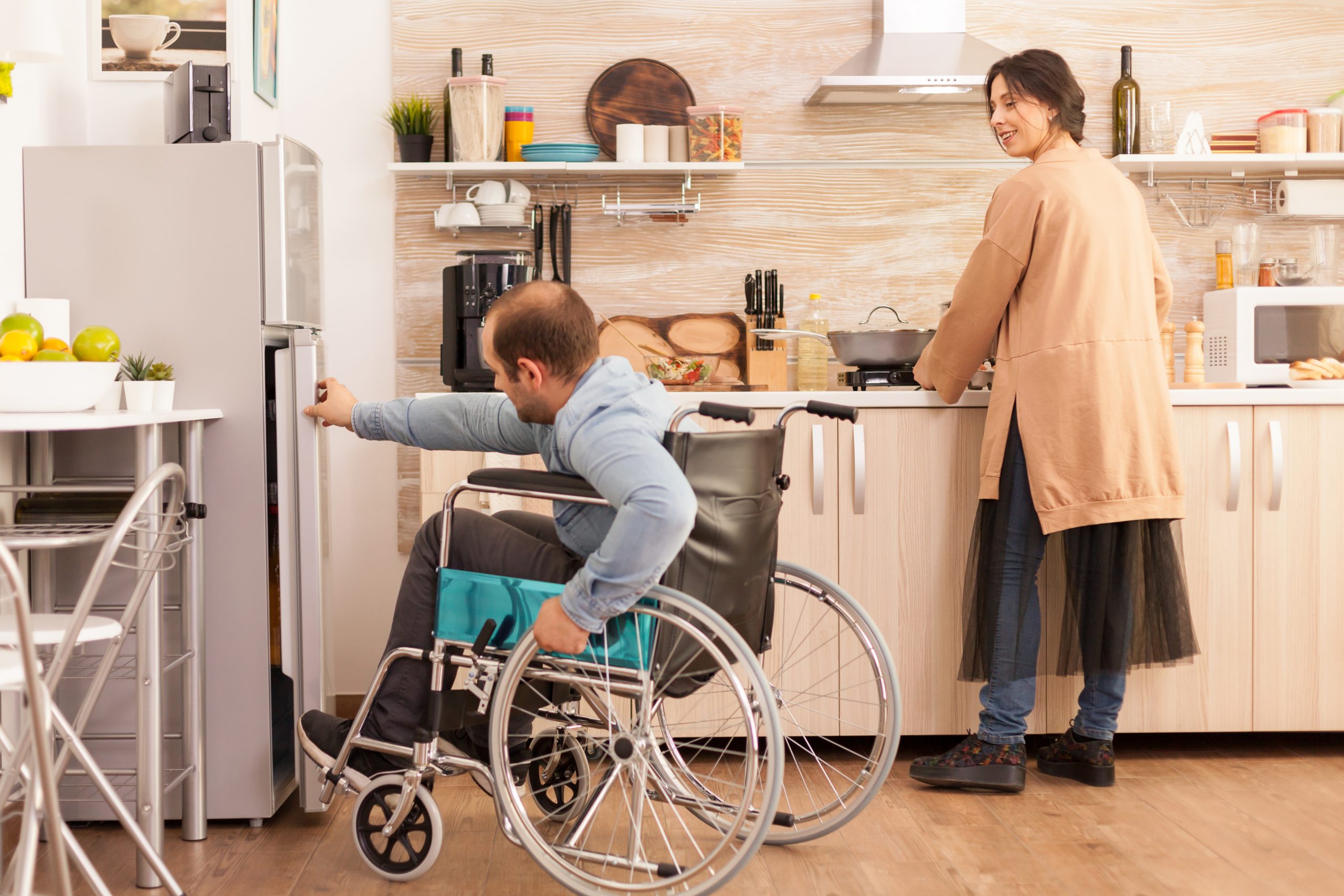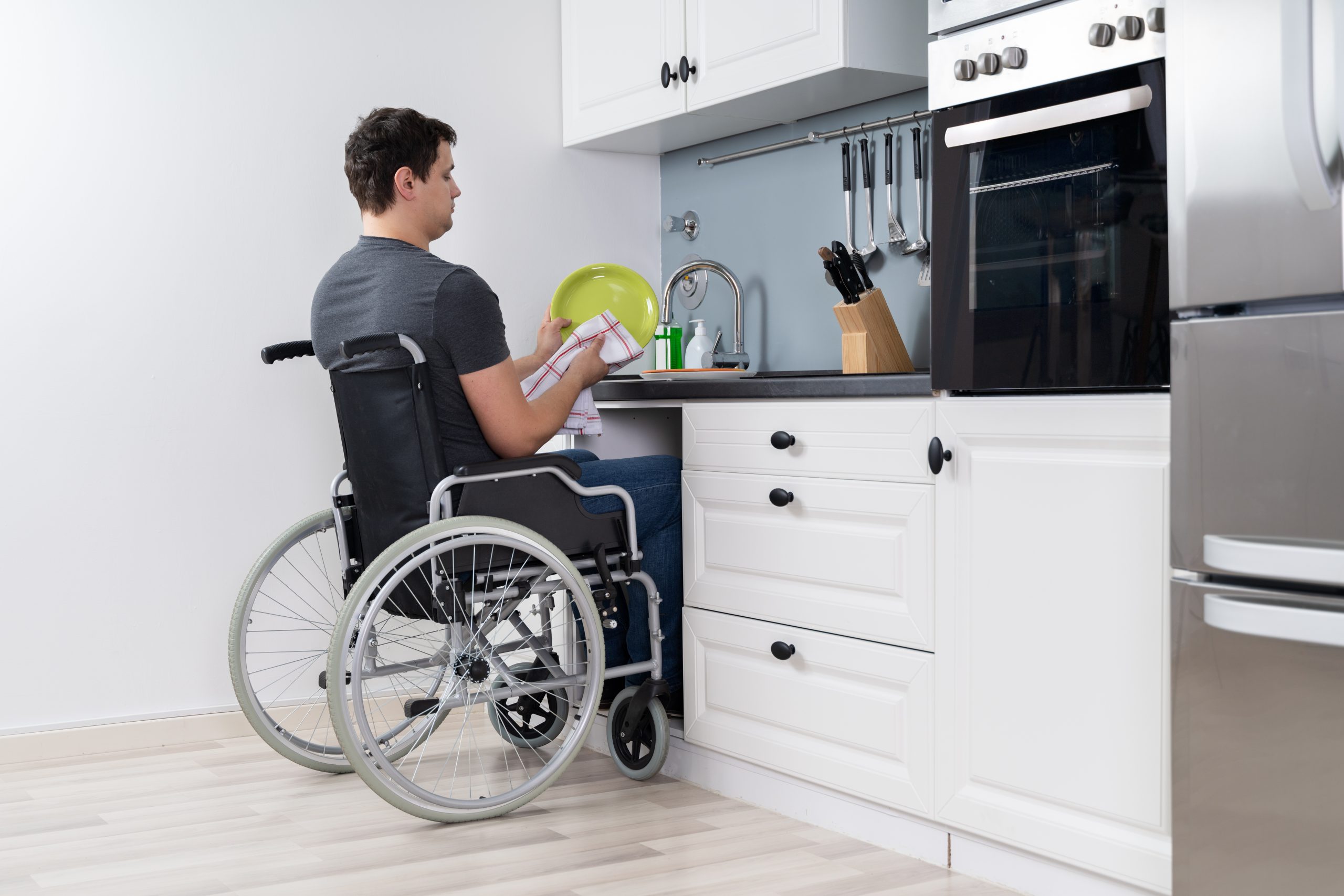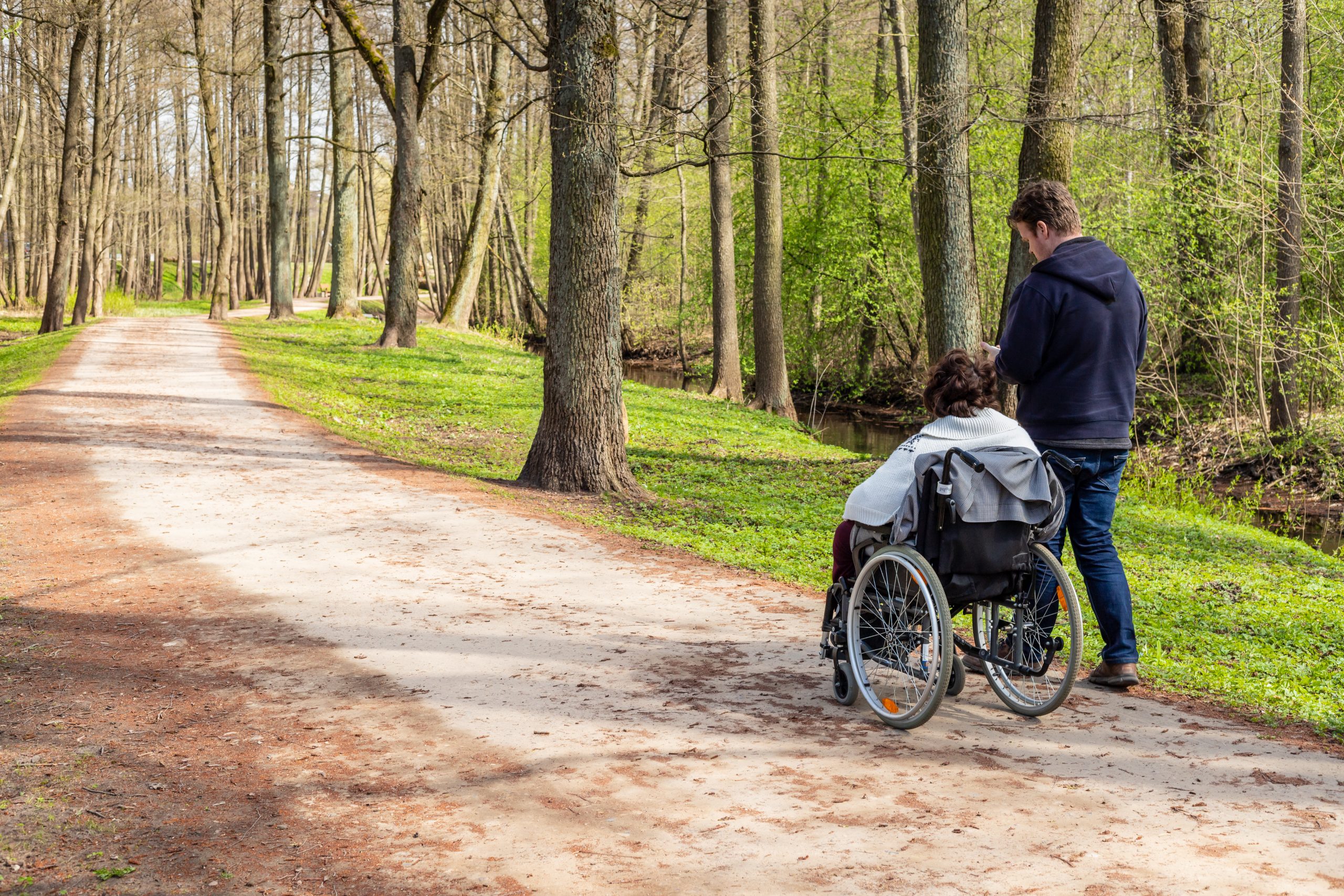Accommodation

Supported Independent Living-SIL
Supported independent living (SIL) helps you live in your home as independently as possible, while building your skills. It includes help or supervision with daily tasks, like personal care or cooking meals. Supported independent living is for people with higher support needs, who need some level of help at home all the time.
AmbaCare SIL homes (Supported Independent Living) may be just what you need. Our team will help you live independently in the community by providing vital care services, helping you learn valuable skills, and giving you opportunities to participate in community life.
Our SIL services include:
- Assistance with personal care tasks such as getting out of bed, grooming and having a shower
- Assistance with domestic tasks such as cooking, laundry, housework and cleaning
- Assistance with managing money, budgeting and grocery shopping
- Medication management
- Meal preparation
- Grocery shopping assistance
- Assistance with household jobs
- Learning valuable life skills
- Social activities and engaging with the community
- Transport to your appointments and activities
- Managing appointments and scheduling healthcare services
- Support for education and work
- Maintaining healthy routines and self-care practices
Where can I receive Supported Independent Living?
You can receive NDIS funded SIL services while living in the comfort of your own home, or if you have high level support needs, while living in Specialist Disability Accommodation.
You can also receive SIL services from carers and support workers in a shared living arrangement. This is where you live in a home with other individuals, and receive individualised support while enjoying the company of others.
If you decide you would like to live in shared accommodation, AmbaCare can assist you find a group home that is right for your needs – from being matched well with your housemates, to ensuring the property is well located and a place where you feel comfortable and supported.
AmbaCare provides professional and compassionate NDIS-funded Supported Independent Living services that is tailored to each individual, both in the home and in supported accommodation. For more information on the kinds of high quality services we provide, please get in touch for a FREE consultation.

Specialist Disability Accommodation – SDA
NDIS Specialist Disability Accommodation is housing that enables people with extreme functional impairment or very high support needs to live comfortably and receive their daily supports. It can include shared supported accommodation, community residential units, or self-contained homes that are fitted with specialist housing solutions.
We currently have two fully accessible homes under construction on track for completion in August 2025. Each home has the capacity to accommodate two participants with each participant in an ensuite living arrangement.
It’s important to note that SDA housing is different from Supported Independent Living (SIL), which refers to the support services you receive to help you live independently.
What is living in Specialist Disability Accommodation like?
Unlike a regular house or apartment, an SDA house has special features that provide the complex supports residents living with disability may need. This helps ensure that people have choice and dignity in their living situation, no matter what their circumstance or physical limitations.
Ambacare specialist disability accommodation homes are located close to shops, amenities and public transport, so you can easily get out into the community. We also believe they should be real homes that you feel comfortable in, customisable to an individual’s tastes and personality.
What are the different levels of NDIS Specialist Disability Accommodation
The NDIS provides funding for 5 different types of SDA, depending on a person’s individual disability and support needs. These categories are: Basic, Improved Liveability, Fully Accessible, Robust and High Physical Support. If you have been approved for SDA payments, your NDIS plan will say which category you are eligible for.
Basic SDA
This type of funding provides basic housing that allows specialist support services to be delivered. It is generally given to people who want to remain in their current group home, and doesn’t include special design features such as ceiling hoists and wheelchair access.
Improved Liveability Housing SDA
This SDA type is for people with a sensory, intellectual or cognitive impairment. It includes specialist design features such as increased luminance contrast to help people with vision impairment; improved wayfinding to help people navigate their physical space; light-based doorbells and fire alarms; improved lines of sight; and reduced lighting levels and other stimuli. Homes in this category meet the Liveable Housing Australia ‘Silver’ Standard.
Fully Accessible Housing SDA
People who have significant physical impairment – for example, wheelchair users – may be eligible for Fully Accessible SDA Housing. Features include no steps at external outdoor areas and doors; wide wheelchair-accessible entryways; appliances and sinks that can be reached from a standing or sitting position; and power supply to door and windows so automation can be retrofitted if needed. Homes in this category meet the Liveable Housing Australia ‘Platinum’ Standard.
Robust Housing SDA
Robust specialist disability housing is for people who have complex behaviours and may sometimes be a risk to themselves or others. These homes have adequate space to support the needs of people with complex behaviours; areas of retreat for other residents, carers and staff; impact-resistant materials to protect participants and reduce the need for maintenance and repairs; sound proofing; and laminated glass. These homes meet the Liveable Housing Australia Silver Standard.
High Physical Support SDA
High Physical Support homes meet the needs of people with significant physical impairment, or who need a high level of personal support. Along with Fully Accessible Housing specialist design features, they features structural provision for ceiling hoists; assistive technology; emergency power solutions to protect the welfare of residents; and household communication technology. Homes in this category meet the Liveable Housing Australia Silver Standard.
Who is eligible for Specialist Disability Accommodation?
Not every person living with a disability needs Specialist Disability Accommodation. The NDIS approves SDA funding for only a small proportion of participants with extreme functional impairment, or who have a very high need for constant and immediately available supports. In addition to considering a person’s goals and preferences, NDIS assessments may include activities of daily living, functional capacity assessments, and/or a behaviour assessment.
If you are approved, your funding is used to cover the cost of the housing; it can’t be used for any other purpose. If you are not eligible for SDA funding, you may be able to receive NDIS payments for home modifications so you can live comfortably in a mainstream home.
Would like to talk to someone face-to-face about NDIS disability accommodation and how funding works? The Home Caring team are happy to have a chat. We have helped many of our clients find and apply for the right NDIS accommodation funding for their needs, and we are happy to support you through the process. Please don’t hesitate to get in touch!
FULLY ACCESSBLE HOMES UNDER CONSTRUCTION – PARA HILLS SA 5096
On track for completion in August 2025!

Short- Term Accommodation -STA
Short Term Accommodation (STA) is a place to stay when you need to live out of home for a short period of time. This includes respite care while your usual carer takes a break.
A short stay away from home—in a safe and supported environment—has many benefits for NDIS participants and their loved ones. Staying somewhere temporarily can provide you with:
- an opportunity to try new activities and find a new passion in life
- a friendly environment where you can socialise and make new friends
- assistance to make living in the community more sustainable
- a chance for your usual support network to take a break for holidays, work or appointments
- a chance to learn new skills and increase your capacity for independence
- somewhere safe to stay if your usual carer is unavailable for a short period of time
Under the NDIS, STA can be included in your plan, and includes accommodation, personal care, meals, and activities agreed on by you and your accommodation provider. Short Term Accommodation usually funded for up to 28 days per year, and you can use this flexibly to suit your schedule. For example, you could use it all in one go, or up to 14 days at a time for NDIS holiday accommodation throughout the year. Or you might want to use one weekend a month as a chance to get away from your usual home for a while.

Medium Term Accommodation- MTA
Medium Term Accommodation (MTA) is a place to stay if you are unable to move into your permanent home just yet – perhaps because your disability supports aren’t ready, or you are waiting for your long-term home to be built.
To be eligible for NDIS MTA, you must have a home that you can move into, and require somewhere to live for a time limited period. MTA is usually funded by the National Disability Insurance Scheme for up to 90 days, and only covers the cost of the accommodation, not usual everyday living costs such as food, internet and electricity. You may be able to receive funding for Medium-term Accommodation beyond 90 days if you have evidence that you need it for longer because of your support needs.
If you have MTA funding included in your NDIS plan, it’s up to you to research NDIS Medium Term Accommodation providers and select the best service provider that suits your needs, although your support coordinator, Local Area Coordinator or planner can help you. By choosing your own provider, you can ensure that you get the kind of accommodation that you want.
MTA NDIS has lots of benefits for participants and their families, including:
- a safe place to stay with plenty of support while you wait for your permanent accommodation
- reassurance while you wait for your home, knowing you’ll be supported in the community
- minimising the risk of being admitted into aged care facilities
- an opportunity to take part in engaging activities and programs
- build your capacity and life skills while waiting for your permanent accommodation
- relieves the pressure on your informal support network, giving them peace of mind
- enabling you to live in the community, with opportunities for socialising

